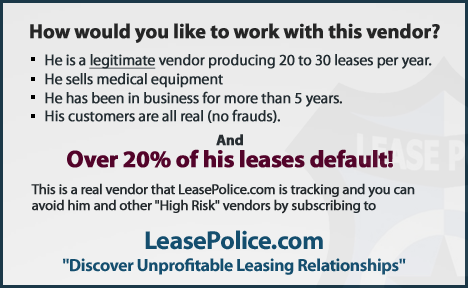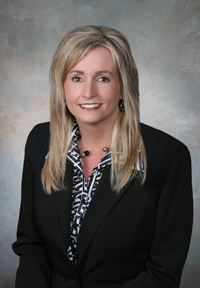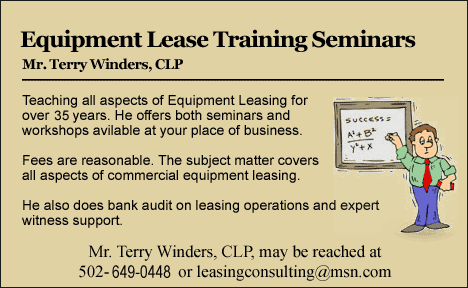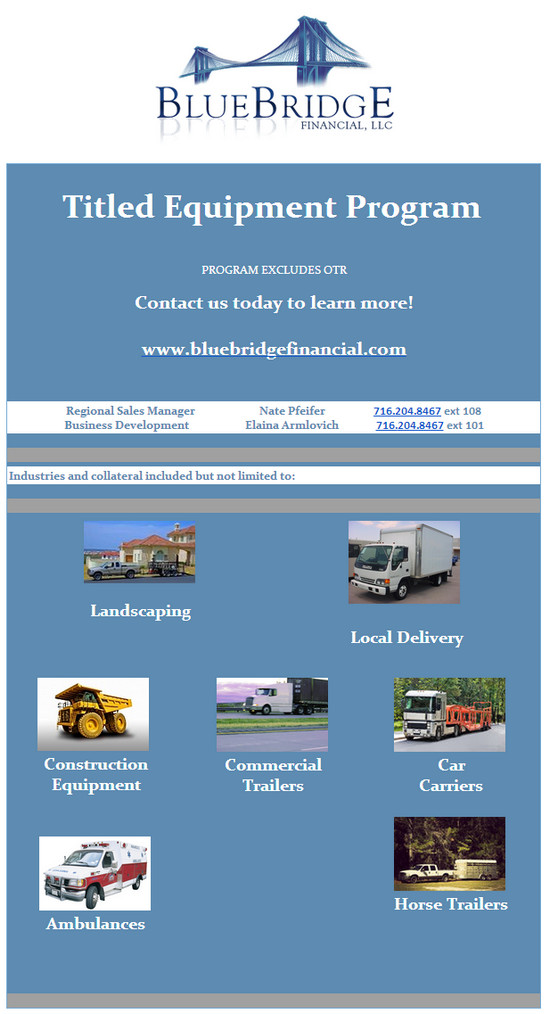Connect with Leasing News ![]()
![]()
![]()
![]()
![]() Add me to mailing list |
Add me to mailing list | ![]() |
| ![]() Search |
Search | ![]() Stress Release
Stress Release
Advertising | All Lists | Archives | Classified Ads | This Day In American History
Leasing News is a web site that posts information, news, and
entertainment for the commercial bank, finance and leasing industry
kitmenkin@leasingnews.org
![]()

Wednesday, November 7, 2012

Today's Equipment Leasing Headlines
Archives---November 7, 2005
10,629 NorVergence Leases in Contention
Classified Ads---Sales
Third-IFC Credit Trustee, Northfield, Illinois
Bulletin Board Complaint
by Christopher Menkin
Companies who utilize Evergreen
Clauses for Extra Lease Payments
Why I Became a CLP, Lori Dean
Operations Manager, Vice-President
Arvest Equipment Finance
As Section 179 Nears Expiration,
Balboa Capital Sees Increase in Business Equipment Leasing
Ascentium Capital Announces Additions to Credit Facility
Classified Ads---Help Wanted
Letters?! We get eMail
Fraudulent Wire Transfer Schemes Continue to Plague
Business and Financial Institutions
By Tom McCurnin
Labrador Retriever Mix
San Luis Obispo, California Adopt-a-Dog
News Briefs---
Novato-based Willis Lease records loss from one-time costs
Small biz fund’s first year—and how it did
Broker/Funder/Industry Lists |
Features (collecti)
Top Ten Stories Chosen by Readers |
Top Stories last six months
You May have Missed---
SparkPeople--Live Healthier and Longer
Sports Briefs---
Baseball Poem
California Nuts Brief---
"Gimme that Wine"
This Day in American History
SuDoku
Daily Puzzle
GasBuddy
Weather, USA or specific area
Traffic Live----
######## surrounding the article denotes it is a “press release”
and was not written by Leasing News nor information verified, but from the source noted. When an article is signed by the writer, it is considered a “by line.” It reflects the opinion and research of the writer.
Please send Leasing News to a colleague and ask them to subscribe.
We are free!
[headlines]
--------------------------------------------------------------
Archives---November 7, 2005
10,629 NorVergence Leases in Contention

US Express Settles for 85% NorVergence Leases Forty customers, totaling $1.7 million, of US Express were offered 85% settlement of "equipment rental agreement" last week.
Allegedly 1,371 NorVergence lessees to date have been offered settlements, out of an original estimated 12,000. This does not include the FTC win of $47 million dollars of "uncommitted" signed leases, with claims against the receivables, assets, held by the NorVergence Corporation in bankruptcy and claimed by several leasing companies as "additional collateral" for their defaulted leases. No count of leases were given, according to Leasing News Research, and it should be noted the 12,000 leases was given to the Bankruptcy judge from the officers of the NorVergence Corporation at the time of filing. It also should be noted there is a 1450 member class action suit. The remainders of the alleged 12,000 leases appear to be in individual litigation with the first issue "venue," which is being overturned in most court districts.
Leasing News is attempting to find out from the 28 attorneys general Offices and District of Columbia actually what the "real number" is who have taken the settlement offered.
Illinois Attorney General Lisa Madigan said the latest settlement agreement could provide more than $160,000 in debt forgiveness to four Illinois small businesses located in Cook and Kane Counties.
Illinois was joined by the Attorneys General from California, Colorado, Connecticut, Georgia, Kansas, Maryland, Massachusetts, Michigan, North Carolina, Pennsylvania and South Dakota in reaching an agreement with New Jersey-based US Express Leasing, Inc. The settlement was reached in connection with collection agreements the leasing company holds regarding NorVergence, Inc.
Impacted consumers and businesses may choose or decline to participate in the settlement agreement. If all affected consumers in the participating states accept the deal, US Express will write off approximately $1.59 million in debt for 40 small businesses.
Earlier this year, Madigan and Attorneys General from across the country announced similar agreements with GE Capital, US Bancorp, Wells Fargo, CIT Technology and De Lage Landen Financial Services. Those leasing companies agreed to write off more than $27.7 million they claimed to be owed by 1,371 NorVergence customers, including more than $6.89 million owed by 341 Illinois customers.
"With each additional settlement reached with a leasing agency - whether big or small - additional small business owners are provided relief from the collection hassles they have experienced since NorVergence declared bankruptcy last year," Madigan said.
 |
((Please Click on Bulletin Board to learn more information))
(Leasing News provides this ad “gratis” as a means
to help support the growth of Lease Police)
[headlines]
--------------------------------------------------------------
Classified Ads---Sales

(These ads are “free” to those seeking employment or looking
to improve their position)
California |
| Garfield, NJ 15 years experience small to large ticket sales exp. All types of equipment industries. Vendor & direct. Self motivated. Work with leasing company or broker. Tony Lio tonylio@optonline.net |
| Montgomery, AL Individual with 10 years advertising sales exp. & 7 years insurance sales exp. Wants independent contractor situation in Alabama. Work with leasing company or broker. 334-590-5133 E-mail: billmcneal2003@yahoo.com |
Orange County, CA |
San Francisco Bay Area: |
| Texas/Oklahoma 15 year lease vet looking for plact to take business.great references. all major equipment types. open to compensation. please contact if interested. E-mail: bankingdallas@yahoo.com |
Free Posting for those seeking employment in Leasing:
http://www.leasingnews.org/Classified/Jwanted/Jwanted-post.htm
All “free” categories “job wanted” ads:
http://www.leasingnews.org/Classified/Jwanted/Jwanted.htm

[headlines]
--------------------------------------------------------------

[headlines]
--------------------------------------------------------------
Third-IFC Credit Trustee, Northfield, Illinois
Bulletin Board Complaint
by Christopher Menkin

"We purchased an Accounting system from them five years ago and financed it through First Corp. It was a 5 year lease with a $1 buyout. We just made our final payment and contacted them about the $10 buyout and wanted to make sure that their records matched ours. They are now called 'The Estate of IFC Credit Corp'.
“ I received this email back from them stating that there was a $1 buyout at the end, but we needed to contact them between a 30 day window (90-120 days prior to end of lease) to take advantage of that.
"They are saying that we didn’t do that so instead of owing $1 the lease renews at the current rate for 12 months. In the email attached they are trying to make a deal with us and if we pay right away they will waive six months. Is there anything we can do? Is there any help you can give or refer us to someone?”
Timothy G. Halko
Chief Financial Officer
Craig Transportation Co.
Perrysburg, Ohio 43551
Lance Craig signed as a personal guarantor, which in Illinois requires the lessor to notify the lessee in advance regarding any purchase option. That the purchase option is $1.00 is ludicrous and to charge any other dollar amount is reprehensible, particularly from a trustee appointed by the State of Illinois, who ethically and legally may be held in contempt of court for this action.
Leasing News is going to refer this to a private attorney as well as the Attorney General's office of Illinois.
Other IFC Credit Evergreen complaints:
New ---IFC Credit BK Trustee Complaint
http://leasingnews.org/archives/Sep2012/9_18.htm#bbc
IFC Credit Trustee, Northfield, Illinois
http://leasingnews.org/archives/Sep2012/9_14.htm#bbc

[headlines]
--------------------------------------------------------------
Companies who utilize Evergreen Clauses for Extra Lease Payments
These companies use language in their purchase options to confuse, perhaps to deceive, with the result an automatic continuation for an additional twelve months of payments.
Several have contiuation of payments and the requirement of replacing the equipment for a new lease. Leasing News has had complaints involving companies who invoke the twelve months on a $1.00 purchase option, as well as on an Equipment Finance Agreements.
ACC Capital, Midvale, Utah
IFC Credit, Morton Grove, Illinois
Jules and Associates
LEAF Financial Group, Philadelphia, Pennsylvania
Marlin Business Leasing, Mount Laurel, New Jersey
Marquette Equipment Finance, Midvale, Utah
Mazuma Capital Corporation, Draper, Utah
Onset Financial, South Jordan, Utah
Republic Bank, Bountiful, Utah
Tetra Financial Group, Salt Lake City, Utah
ACC Capital, Midvale, Utah---This company is no longer in business, although its portfolio is being wound down, according to its owner Loni Lowder; the receivables are being collected by creditors. Lowder today is an employee, manager, Stalwart Contract Finance, Salt Lake City, Utah. To date, all Evergreen Clause complaints have been satisfied.
IFC Credit, Morton Grove, Illinois---This company is in bankruptcy, appeared many times in the Leasing News Bulletin Board prior to filing bankruptcy, but engaged in Evergreen Clauses, and unfortunately a recent example is a complaint to the trustee, stemming from M&T Bank lease assignment expiring and notify the lessee that they did not notify about the residual, which was a $1.00. This has happened many times with other banks who have taken over the IFC Credit Corporation portfolio. Calls and letters to the trustee and attorneys have gone unanswered.
Jules and Associates, Los Angeles, California--- Jules and Associates, Los Angeles, California---A repeat customer, who notified Jules and Associates on a lease, but was not before the 180 day expiration, so Jules and Associates instead of the 1% due for the residual ($2,308.79) charged six more payments or $40,463.94, and if 1% is not paid in this time, they will be subject to another three months.
http://leasingnews.org/archives/Aug2011/8_29.htm#jules
LEAF Financial Group, Philadelphia, Pennsylvania---It appears this company is in a more wind down phase, moving its operation of LEAF Commercial Credit with basically the same management. There have been complaints about the Evergreen Clause, including one this year for an Equipment Finance Agreement!
Marlin Business Leasing, Mount Laurel, New Jersey---The actual SEC filings state the profit earned from Evergreen Clause, primarily from copier leases. Bulletin Board Complaints have been received about this practice in addition to the SEC financial statement filings.
(9) Marlin Response to posting
Marquette Equipment Finance, Midvale, Utah --- According to Dorran Sampson, Vice-President/Broker Relations: "Marquette Equipment Finance does not offer an Evergreen product. Our master lease provides for extensions but is negotiated at the schedule level. Notice periods are also negotiated at the schedule level and vary depending on the Lessee’s needs."
When the company was bought and became Pacific Western Equipment Finance (a division of Pacific Western Bank) he maintained the same position. It was noted his old company was still on the list, and a request of his "master lease" was made.
"Our docs are the same as when we were with Marquette. Because we’re public now, it is very difficult to get documents released."
I asked him if he could send to a broker wanting to do business with him, "Sorry, can’t forward to you or your brokerage."
A search of PACER, a national index for U.S. district, bankruptcy and appellate courts brought up a number of Marquette cases, and the first one hit pay dirt: Merchants & Farmers Bank, a Mississippi Corporation versus Marquette Equipment Finance and Applied Financial. It was a similar case and while "dismissed with prejudice" (6), it had the arguments regarding the purchase option and a copy of the complete contract with a similar PPR as with Mazuma Capital:
"(g) Lessee's Options at End of Initial Period. At the end of the Initial Period of any Lease, Lessee shall, provided at least one-hundred-eighty (180) days prior written notice is received by Lessor from Lessee via certified mail, do one of the following: (1) purchase the Property for a price to be determined by Lessor and Lessee, (2) extend the Lease for twelve (12) additional months at the rate specified on the respective Schedule, or (3) return the Property to Lessor at Lessee's expense to a destination within the continental United States specified by Lessor and terminate the Schedule; provided, however, that for option (3) to apply, all accrued but unpaid late charges, interest, taxes, penalties, and any and all other sums due and owing under the Schedule must first be paid in full, the provisions of Sections 6(c) and (d) and 7(c) hereof must be specifically complied with, and Lessee must enter into a new Schedule with Lessor to lease Property which replaces the Property listed on the old Schedule. With respect to options (1) and (3), each party shall have the right in its absolute and sole discretion to accept or reject any terms of purchase or of any new Schedule, as applicable. In the event Lessor and Lessee have not agreed to either option (1) or (3) by the end of the Initial Period or if Lessee fails to give written notice of its option via certified mail at least one-hundred-eighty (180) days prior to the termination of the Initial Period, then option (2) shall apply at the end of the Initial Period. At the end of the extension period provided for in option (2) above, the Lease shall continue in effect at the rate specified in the respective Schedule for successive periods of six (6) months each subject to termination at the end of any such successive six-month renewal period by either Lessor or Lessee giving to the other party at least ninety (90) days prior written notice of termination."
The first option is to purchase the equipment for a price to be determined by Lessor and Lessee and requires a certified letter 180 days prior. This sounds like a fair market purchase option, but the “price to be determined” language means that the Lessor can set any price it wants. This option is illusory in my opinion.
The second option is to continue the lease for an additional 12 months, the “Evergreen” period. No notice of this provision is given to the lessee either in advance of signing or prior to exercising this option. Republic Bank purchases these 12 month extensions in advance of their exercise. How would the bank know that the lessee is going to exercise this option, unless everyone knows it is the only practical option for the lessee to exercise? Republic Bank President Boyd Lindquist confirmed in a telephone call that he “buys” these extensions from Mazuma and has for quite some time.
The third option is to return the equipment, but the clause is draped with the condition that the lessee has to re-lease identical equipment for a similar term. It also has 180 day certified letter requirement, and applies to the second option of 12 months, but also has the clause of an automatic six month option. So what is the point of exercising this option? At the end of this re-lease, there would be the same three identical options, so the lessee would be required to re-lease and re-lease. It’s just like Groundhog Day.
Leasing News is working on obtaining information on other companies so named to add to the list, including follow-up on the master lease for Pacific Western Equipment Finance. If you have a copy, please send and will keep your name “off the record.”
((7) See for Copy of Filing, including contract.)
Mazuma Capital Corp, Draper, Utah Several routie "end of lease agreements, as alleged in Unified Container and Anderson Dairy (1) "8. The basic scheme involves the inclusion of a purchase, renewal, return (“PRR”) provision in the lease. The lessor assures the customer they will be able to purchase the equipment at the end of the initial term in the lease for a reasonable or nominal price. Often, the lessor promises the equipment can be purchased at a fixed percentage of the total amount financed. However, at the end of the initial lease term, the lessor refuses to honor the agreed upon purchase price or negotiate in good faith regarding a purchase price, but instead, insists the lease automatically renews for an additional term (usually twelve months).
9. The inclusion of the purchase and return options in the lease are entirely illusory and intended only to give the customer the false impression that it can exercise any of the three options at the end of the initial lease term, when in fact, the lessor will only allow an automatic renewal at the end of the initial lease term.) There are other exhibits. This case was settled "out of court."
(page 3)
H. Jared Belnap, President & CEO, Mazuma Capital Corp., takes exception on beingon the Evergreen list. His full letter and Leasing News Response is at (5).
Onset Financial, South Jordan, Utah --- Onset contract, which contained:
“Section 20
n. Lessee's Options at Maturity of Base Period. At the maturity of the Base Period of any Lease, Lessee shall, provided at least one hundred fifty (150) days prior written notice is received by Lessor from Lessee via certified mail, do one of the meowing: (1) purchase the Property for a price to be determined by Lessor end Lessee, (2) renew the Lease for twelve (12) additional months at the rate specified on the respective Schedule, or (3) terminate the Schedule and return the Properly to Lessor at Lessee's expense to a destination within the continental United States specified by Lessor; provided, however, that for option (3) to apply, all accrued but unpaid late charges, interest, taxes, penalties, and any and all other sums due end owing under the Schedule must first be paid in full, the provisions of Sections 8f, 8g and 7d hereof roust be specifically complied with, and Lessee must enter into a new Schedule with Lessor to lease Property which replaces the Property fisted on the old Schedule. With respect to options (1) and (3), each party shall have the right in its absolute and sole discretion to accept or reject any terms of purchase or of any new Schedule, as applicable. In the event Lessor end Lessee have not agreed to either option (1) or (3) by the maturity of the Base Period, or if Lessee fails to give written notice of Its option via certified marl at least one hundred fifty (150) days prior to Use maturity of the Base Period, or if an Event of Default has occurred under any Lease, then option (2) shall apply at the maturity of the Base Period. At the maturity of the renewal period provided for In option (2) above, the Lease shall continue in effect at the rate specified in the respective Schedule for successive periods of six (6) months each subject to termination at the maturity of any such successive six-month renewal period by either Lessor or Lessee giving to the other party at best thirty (30) days prior written notice of termination." (1)
((8) See for Copy of Onset Contract with PPR purchase option.
Republic Bank, Bountiful, Utah Purchases and participates in extended Evergreen clause agreements.
They are legal in all states, except four states require advance notification be given to the lessee regarding termination of the lease and its residual (Four states: New York Rhode Island, Texas, Illinois (In Illinois, Consumer law, but may affect commercial, especially a proprietorship, partnership or personal guarantee)"
Tetra Financial Group, Salt Lake City, Utah Several routine "end of lease agreements, as alleged in Unified Container and Anderson Dairy (1)
“22. Mazuma Capital is associated with Republic Bank and obtains financing for its leases containing PRR provisions from Republic Bank.
23. Like what took place at Amplicon, Inc., the PRR scheme utilized by Matrix, Applied Financial, LLC, Mazuma Capital, Tetra Financial Group, LLC and others has begun to be exposed through litigation and negative press. See Deseret News (2) articles attached hereto as Exhibits B (2) and C. (3)”
Here is a case where New York courts threw out the Evergreen Clause as not legal in New York, even though venue appears to be Utah. (4))
(1) 36 main pdf
http://leasingnews.org/PDF/36main.pdf
(2) Deseret News
http://leasingnews.org/PDF/DeseretNewsarticle.pdf
(3) Exhibit C
http://leasingnews.org/PDF/ExhibitCDeseret.pdf
(4) Salon Management case
http://leasingnews.org/PDF/SalonManagement.pdf
(5) Mazuma Takes Exception on Being on Evergreen List
http://leasingnews.org/archives/Jul2012/7_30.htm#mazuma
(6) Order to Dismiss with Prejudice
http://leasingnews.org/PDF/Marquette_order_dismiss.pdf
(7) Copy of filing, including contract
http://leasingnews.org/PDF/Maquette.pdf
(8) Copy of Onset Contract with PPR purchase option
http://leasingnews.org/PDF/OnsetContract.pdf
(9) Marlin Response to posting.
http://leasingnews.org/archives/Jul2012/7_13.htm#response
[headlines]
--------------------------------------------------------------
Why I Became a CLP, Lori Dean

Lori Dean
Operations Manager, Vice-President
Arvest Equipment Finance

Like many others who have written on how they became a CLP, I didn’t have a clue what it meant or its value. I wasn’t to learn until later how it helped my career, my performance, and our team growth in equipment financing and leasing. It all started when I agreed to become a part of the original team that started the Arvest Equipment Finance division of Arvest Bank in 2007. Although I had “grown up” in the banking industry, the leasing transactions I had limited exposure to our industry, made me realize I had a lot to learn.
Immediately following the initial ramp-up phase for Arvest Equipment Finance, my division President Kyle Gilliam, CLP, began to talk about this distinguished Certified Lease Professional designation. A CLP handbook was ordered and I was encouraged to casually read through the chapters and attend the master review class at an industry conference we were attending. It was a challenge as I dove into the book and the more I read, I realized I had just signed up for an adventure. This was not a casual read and my commitment level suddenly seemed to waiver. For several years I made excuses and then my 3rd annual performance appraisal suddenly had the dreaded goal I’d been ignoring. If I knew more about leasing when I started, the test for the CLP would certainly divulge.
Unfortunately for me, I couldn’t just show up and take the test; no one does as you need to study to pass. The Institute for Leasing Professionals session (sponsored by the National Equipment Finance Association I attended in Bellevue, Washington was the most beneficial experience because I sat and fine-tuned the areas I needed to focus on to take the test. In my opinion, you can never study, review and prepare enough for the eight hours of a four section exam. I even reverted to the all night cram before the test. Yes, I was desperate to prove that I was a Certified Lease Professional!
The people in our lives that influence us are sometimes unaware of the impact they have. My division President pushed me to see the importance of holding the CLP designation. The valuable knowledge I gained preparing for the test, the contacts I made attending the industry conferences and the Institute for Leasing Professionals session as well as networking with other Certified Lease Professionals, has given me an added confidence.
I am now getting more involved, including being a conference chair for the National Equipment Finance Association. It has also brought me recognition at the bank, where others in our department have also become a CLP. We have seven right now, and more to come, as I am mentoring some of my colleagues.
What we are learning at Arvest Bank is to respect those with the designation, as they have proven they hold the highest standards, have proven their knowledge of the industry by passing the test, and I plan to be recertified every four years (No recertification, but proof active in the leasing industry).
I am proud to be a professional in the leasing industry.
Why I Became a CLP series
http://www.leasingnews.org/CLP/Index.htm
 |
(This ad is a “trade” for the writing of this column. Opinions
contained in the column are those of Mr. Terry Winders, CLP)
[headlines]
--------------------------------------------------------------
#### Press Release #############################
As Section 179 Nears Expiration,
Balboa Capital Sees Increase in Business Equipment Leasing

IRVINE, CA-- - Balboa Capital, a leading equipment financing and working capital loan company in the United States, is seeing an increase in capital equipment investing by small business owners who want to take advantage of the current Section 179 tax deduction before it expires on December 31, 2012. After this deadline, the Section 179 deduction limit will drop to $25,000 from its current limit of $139,000. Balboa Capital recently launched a comprehensive awareness campaign that includes a Section 179 infographic and Section 179 video that highlights their online Section 179 tax calculator.
Race Against Time for Business Tax Write-Offs
With 2012 coming to a close, now is the time for businesses to acquire new or used capital equipment that qualifies under Section 179. Companies can write off the full purchase price of qualifying equipment that is bought and put into use before the end of the year.

David Chiurazzi, CFO
"Investing in new equipment is a way for businesses to grow and succeed, and Section 179 encourages this," said David Chiurazzi, Chief Financial Officer at Balboa Capital. He adds, "Small businesses are on the fast track to get new equipment because today's generous tax deductions won't be here in 2013."
Understanding Section 179
The Section 179 tax deduction is an IRS tax code that allows businesses to deduct up to $139,000 worth of eligible business property that is purchased or financed in 2012, instead of depreciating the asset over several years. On January 1, 2013, this maximum deduction is decreasing to $25,000, and the first-year bonus depreciation on new equipment, which is currently 50%, will be eliminated. Only tangible, depreciable business property qualifies for Section 179, such as office equipment, computers, machinery and business vehicles. "There's a list of qualifying equipment on the IRS website, but business owners should always consult with their accountants," said Mr. Chiurazzi.
About Balboa Capital
Established in 1988, Balboa Capital has provided fast, dependable funding to thousands of businesses nationwide that use the Section 179 tax deduction. Balboa Capital is one of the largest independent finance companies in the nation delivering access to capital, speed of processing, leading-edge technology and innovative marketing tools that help fuel the growth and success of today's businesses and equipment vendors. Visit www.balboacapital.com today.

Section 179 Tax Deduction Video (2:01):
- Learn how the Section 179 tax deduction can benefit your small business in this video created by equipment leasing company Balboa Capital. The video also features on-screen information about
http://www.youtube.com/watch?feature=
player_embedded&v=crM30VGVES4
##### Press Release ############################
Comprehensive personal property tax outsourcing services |
[headlines]
--------------------------------------------------------------
#### Press Release #################
Ascentium Capital Announces Additions to Credit Facility

KINGWOOD, TX, – Ascentium Capital LLC announces that it added both Bank of America and Credit Suisse to its existing lender group which currently includes UBS and Bank of Montreal/Harris Bank.

Tom Depping, Chief Executive Officer of Ascentium Capital stated, "We are pleased to have diversified our funding sources by adding two first class money center financial institutions with strong trading platforms. We have aggressively grown our vendor sales force and monthly origination volume over the past year. Having four significant lending partners in our lender group provides us significant borrowing capacity and will enable us to more efficiently fund our business and attract talent."
Ascentium Capital specializes in providing financial solutions to open new avenues for growth and profit for small businesses located nationwide. The company offers equipment financing and leasing for capital expenditures across many industries nationwide.
Ascentium Capital is backed by Vulcan Capital, the private investment group of Paul G. Allen, and a group of investors led by LKCM Capital Group, LLC (“LKCM”), the alternative investment vehicle for Luther King Capital Management.
#### Press Release #################
[headlines]
--------------------------------------------------------------
Leasing News Help Wanted Classified Ad
(Appears on top of News Headlines
in a rotation basis with other Help Wanted as)

Please see our Job Wanted section for possible new employees.
[headlines]
--------------------------------------------------------------
Letters?! We get eMail

(Mostly in Chronological Order)
"My Wife Mary Ann had a serious operation last Tuesday and had significant spinal cord damage. Good news is that went good however after 3 days out of the hospital she is in severe pain at the site and through her shoulders and
she cannot walk without assistance. The doctors are trying to figure out what is wrong so all her friend is NAELB and NEFA any prayers is appreciated.
“Please remember Patrick Sponsel and Rosanne Wilson as well."
Sincerely,
Bud Callahan, CLP
National Equipment Leasing
---
Why I Became a CLP
Theresa Kabot, CLP, BPB
http://leasingnews.org/archives/Oct2012/10_31.htm#clp
"Thank you for selecting me for your “Why I Became a CLP” feature. I am honored. Moreover, thank you for your enduring support of the CLP program. I wish you could have some idea of how much CLP appreciates you. I appreciate you, too."
Sincerely, Theresa
Theresa Kabot, CLP
K2 Funding
Kabot Commercial Leasing LLC
---
Wells Fargo Equip. Finance Stripped of Its Perfected Lien
By Tom McCurnin
http://leasingnews.org/archives/Oct2012/10_29.htm#wf
"I am really enjoying the articles by Tom McCurnin. Thanks for continuing to keep us all abreast of new developments."
Barry Marks
--
"Tom's columns are terrific! Informative, educational, entertaining, gripping. He should collect those columns in a book. Everyone in the leasing business would buy a copy (including me).
"Great feature."
Regards,
Bob Teichman, CLP
Teichman Financial Training
---
"Love reading Tom McCurnin in Leasing News"
rich.vohra@gmail.com
----
Titled Equipment Program

"...received extremely positive responses from our advertising with your publication and we look forward to working with you in the future."
Elaina
Elaina Armlovich
Business Development
Blue Bridge Financial, LLC
--
45 Years in Leasing
"Kit, I thought you would like to pass on to all they old time lessor owners that Bob Storey, former of Master Lease Co. was still around and reading your newsletter as I am turning 82 in Nov 2012. Still in good health even though some say lessor die early. While there may not be many more still around, I'm sure there are a few. You might want to let them know I'm still here. my email is rstorey@sc.rr.com in case they would like to say hi.
"I've enjoyed your newsletter and it even helps me keep up with what's happening in the business I was in for over 45 years."
rstorey@sc.rr.com
---
(most current one)
Alexa Rates Web News Standings
http://leasingnews.org/archives/Nov2012/11_05.htm#alexa
“Alexa for ten years has ranked Leasing News first among internet readers for news in the leasing industry in the United States as well as the most read from the United states in other countries.
"Congratulations Kit!! Hope all is well. All good here. Both PFSC &
“Varilease Finance are having record years.
"Take Care."
Bob
Robert W. VanHellemont
CEO
---
Yankee Stadium Parking Company Defaults on its Bonds
http://transportationnation.org/2012/10/11/yankees-stadium-parking-company-defaults-on-its-bonds/
"Every year, for Fathers’ Day, my daughters take me, my sons-in-law, and the grandsons to the Stadium. You may know that the footprint of the old Stadium remains as a playground of three fields that are used for Bronx baseball leagues. It is nicely done and the players are thrilled that they are playing on the same dirt as Ruth, Gehrig, DiMaggio, Berra, Mantle, Munson, et. al. What remains however, is a parking garage that ran behind the old Stadium. I noticed at the game we attended this year that this four story structure was completely vacant and not in use.
"We all know that parking at these games is ridiculous, and it is interesting that this article speaks to the private lots that we park in…although still high, they are lower than the garages attached to the Stadium. Another example of the free market economy, driven by pricing and supply, working its mechanics.
"Go Giants!"
Ralph
Ralph Mango Project Management Coordinator | comScore, Inc. (NASDAQ:SCOR)
---
Classified Ad:
Southern CA
20 years exp. as hands-on leasing CFO, managing accounting, treasury, FP&A, including securitizations, Great Plains/FRx, budgets, risk management. MBA. Also available as interim Controller/CFO, consultant.
"Please remove my ad. Thanks for running it. I have moved on and am now CFO at a non-profit. I still love to read the Leasing News to see what's going on in the industry I spent so many years in.
You perform a wonderful service! Keep up the great work!"
All the best,
Jim Burke
---
Joseph Bonanno (MBA, JD), Why I Became a CLP
http://leasingnews.org/archives/Oct2012/10_10.htm#clp
"Got a chuckle at the blast from the past about Joe Bonanno!
"I don't think enough of us take the time to recognize all Joe has done for our industry, usually without fanfare or reward. He's done more than anyone I can think of to encourage and enforce ethical standards among brokers and funders and to promote the interests of brokers, the most under-represented financial players in America.
"As senior finger-wagger, he gets sideways glances and put-downs, but few work harder and deserve more thanks."
Barry Marks, Esq.
---
BBB: Rating Leasing Companieshttp://www.leasingnews.org/Pages/bbb_listings.html
"Regarding BBB: I think that their rating system is a huge hoax on the public. A horrible company with 60+ complaints (which means another 600 people hate them and 6000 more would never use them again, but I digress), could easily have a big “A+” that the BBB customer would use in their advertising to make them seem like a good firm to do business with. BBB must know that 99% of the public would not take the effort to hit the hyperlink or go to the BBB web site and see that there could be 60 or any number of complaints so they are relying on the trusting nature of most folks to spread false good ratings on otherwise terrible companies. A filthy company with 60 complaints should have an indelible rating of D, and never any better, even if all complaints have been “satisfied”. A “C” rating is not good enough because an average business treats their customers fairly, a terribly one is below average. Just imagine the Paynet or D&B or Experian or any other database rating if you had 60 serious blemishes. You could have hundreds of positives and still never get a good overall raging, now that is proper reporting the BBB report is a lie.
"The other thing that amazes me is that some leasing companies seemingly think the public is so stupid that they have their BBB a+ logo on their web site and figure that will convince people, and don’t figure someone will put the hyperlink and see all the dirt. They are either very stupid or very cynical.
"By the way, we have been in business 26 years, have several thousand customers, many with 5, 10, 15 and more leases, some with 20+, and vendors that go back 15 years, and no complaints ever in BBB because we treat people right. If you treat people like dirt, they get revenge by reporting you to the BBB and filing suits (which we have had none). All of this is an aside, my main point is that the BBB is bogus.
"Wow, I am amazed how right I am and I bet you agree.
"Thank you,"
Bruce Forinash, Leasing Agent
brucef@investmentleasing.com
www.investmentleasing.com
----
Son: Professional Drummer
"As many of you know, my middle son Aaron, is a professional drummer. He’s accomplished quite a bit so far and many of you have seen him perform live on the television shows Glee and Glee Project. He has put together a very comprehensive website to display his mastery of several musical styles. For those of you with Facebook, he will continuously post Facebook with new videos, some drum lessons for various levels, interviews and more.
"We are making a push for exposure and I’d be personally grateful for any of you on Facebook to “Like” and “Share” his Facebook Page “Official Aaron Rudin”. For those of you without Facebook, please ask your kids to do this and please look at his work at www.aaronrudin.com.
"THANK YOU!"
Quail Equipment Leasing
Jeff Rudin
---
Fifty “First Time” Attendees at NEFA Funding Symposium
by Dwight Galloway, CLP
http://leasingnews.org/archives/Sep2012/9_18.htm#fifty
NEFA Elects New Officers
John Rosenlund, CLP, will be president
http://leasingnews.org/archives/Sep2012/9_18.htm#nefa
Randy Haug Named NEFA Member of the Year
http://leasingnews.org/archives/Sep2012/9_20.htm#haug
"Thanks for posting the nice article 2 days in a row about the NEFA member of the year.
"I'm not much into notoriety, but it is meaningful to me to be selected for this honor from my industry peers, and especially an award named after my dear friend Chris Walker. The most important part for me was sharing the stage with Jean and Maddie Walker who came to DC as we honored Chris Walkers legacy with NEFA, the CLP and the greater industry. Doug Olson Co-Chairman of GreatAmerica and his wife and daughter also accompanied Jean and Maddie on this trip. To me the focus should be on them, more than me honestly.
"Hope you continue to do well and we appreciate you mentioning this event.
"Thank you again!"
Randy Haug
---
Likes Leasing News
Thanks again for the ongoing education and for making me feel looped in.
Best,
Vernon Tirey
LeaseQ.com
---
Paul Weiss Advice
"In reading today's leasing news, Paul Weiss of Panther Leasing suggested to an individual inquiring about becoming a lessor to read Terry Winder's column vs. buying any other book. I totally agree as they are so informative in all aspects of leasing. For years I have read and made copies of Terry's columns and have quite a library. Having been in leasing for 38 plus years, I still learn something new or remember things forgotten by reading Terry Winder's well written and concise articles. I have also considered taking the CLP exam and if so will use Terry's articles as a source for my studies.
Keep up the good work Kit!"
Mike Grace
Grace Capital Co.
New Orleans, LA
[headlines]
--------------------------------------------------------------
Fraudulent Wire Transfer Schemes Continue to Plague
Business and Financial Institutions
By Tom McCurnin
Barton, Klugman & Oetting
Three Different Approaches: Three Different Results.
What Security System is Right For You?
Charles Caleb Colton, an English cleric and writer, once said that “There are some frauds so well conducted that it would be stupidity not to be deceived by them.” And it is true today, as frauds get more and more sophisticated.
Fraudulent Wire Transfers are back on the rise again, this time with high tech fraudsters that penetrate security procedures and victimize business and banks alike. As demonstrated by three cases, fraudsters have the ability to take over business computers from remote locations, change the phone numbers for secure lines, and figure out the username and passwords of businesses which originate wire transfers. Quite frankly, it’s scary. Depending on the status of the reader, as a business or financial institution, the liability for a fraudulent wire transfer and the various approaches to stop such fraud may be different. Usually, it’s between the only two parties with a stake in the funds, the bank and the customer.
If the business is a victim of a fraudulent wire transfer, shifting the loss to the bank depends mainly on the scope of the financial institution’s agreed upon security procedures. Surprisingly, some financial institutions do not have such procedures, and if they do, many do not insist that the customer sign them. Other financial institutions may not offer the latest security procedures, and the bank’s actions may be deemed commercially unreasonable. If the bank is the victim, then its salvation will be the Uniform Commercial Code and the existence of commercially reasonable agreed upon security procedures.
To find the answer as to how courts deal with fraudulent wires, we looked at three different States, three different banks, and three different customers. The courts gave us three different results, but the cases demonstrate how fraudsters can get away with draining a bank account in minutes, and whether or the bank, or the customer, will bear the loss. Which entity bears the loss will depend mainly on the existence of an agreement to institute security procedures and whether the procedures are commercially reasonable.
The failure to have any procedures in place was the downfall of one financial institution. In the case of Universal City Studios Credit Union v. Cumis Ins. Soc., Inc., 2012 WL 3089378 (Cal.Ct.App. 2012), the Credit Union apparently did not have a security procedure or if it did, it did not require the customer to come into the branch and sign it person. Therefore the Credit Union was stuck with a $200,000 loss.
Universal City Credit Union received a phone call from its supposed customer, who requested that the Credit Union change the phone number on the customer’s account. The caller was not the customer but the fraudster.
The Credit Union wisely asked the “customer” for personal identification information, such as date of birth, social security number, mother’s maiden name and the like, which the customer readily and accurately supplied. The Credit Union did in fact change the phone number on the customer’s account. That was the first step to enable the fraudster to drain the account.
The next day, the “customer” called back and wanted to wire transfer the balance of the account to a third party, and even faxed a written request. The signature on the fax matched the signature on file. But as we know, a fax image may be photo-shopped or cut and pasted. The Credit Union did not insist upon the customer appearing in the bank in person.
The Credit Union performed a security check on the fax and the signature was genuine. The Credit Union called the “customer” to verify the wire, and the customer verified the wire.. The wire was approved and sent.
The problem is that the Credit Union was being spoofed by a fraudster. The phone number was a cell phone, and the fax authorization was taken by fax and not in person. The Credit Union did not know who it was dealing with. When the unauthorized wire was discovered, the Credit Union could not shift the loss to the customer because it did not have a written, signed security procedure agreement detailing the security procedures put in place with the customer. Consequently, the Credit Union was denied both recovery from its customer and its insurance coverage.
In All American Siding & Windows v Bank of America, 367 S.W.3d 490 (Tex Ct. App. 2012), the Bank had a written security procedure and the customer was cleverly spoofed to the point that the fraudster knew the user name, passwords and other information in the customer’s ACH system. Because the bank had a security procedure agreement, it was the customer, not the Bank that bore the loss.
In All American Siding, the company was plagued by forgeries on their deposit account. At the request of the bank, they opened up a new account and installed a positive pay system, whereby each debit is manually cleared, every day by the customer on line—every debit except wires and ACH’s.
For wires and ACH’s, the bank and the customer signed a detailed security procedure agreement whereby the originator of the ACH had to logon to a secure web site, input a username and a password. There was no call back procedure in the agreement. Somehow, the fraudsters logged onto the system, inputted the username and password, and drained the account in minutes.
When fraudulent wires were discovered, the Bank simply pointed to the agreement for the security procedures the customer agreed to (username and password), and the court placed the loss on the customer.
In Patco Const. Co., Inc. v. People's United Bank, 684 F.3d 197 (1st Cir. 2012), the Bank appeared to do everything right. It contracted with a National payment systems contractor, Jack Henry & Associates. The “premium” security package consisted of three levels of security: (1) User IDs and Passwords; (2) Invisible Certificate Cookie on Terminal; and (3) Risk Profiling; (4) Challenge Questions; and (5) Dollar Amount Thresholds which triggered the challenge questions. Moreover, as a further show of security, all transactions over $1 were subject to a challenge question.
The customer did not sign a formal security procedure agreement but may have agreed to some of the terms mailed to the customer in bills and sent via email to the customer.
Over the course of a week, someone at a remote terminal using a proper user ID and password ACH’ed the entire balance of the account to a previously unknown recipient. Although the bank knew the ISP of the originator was wrong and the recipient was new, the bank did not notify the customer.
When the fraud was discovered, a computer forensic expert was called in to diagnose the problem and found a keystroke logger virus on the system.
The trial ruled that the bank’s security procedures were commercially reasonable and that the customer had agreed to them, dismissing the customer’s lawsuit. On appeal, the 1st Circuit held that the Bank, by implementing challenge questions on every single transaction, actually encouraged and enabled the security breach, because the keystroke logging program gave the fraudsters the correct answers to all of the challenge questions.
Consequently, the Court of Appeal reinstated the customer’s lawsuit. In short, the security system was so tight that it actually encouraged fraud, a case of more is actually less.
Can we make any sense out of these three identical frauds with very different results? Well sort of.
The most important principal is the security system agreement, if there is one. Both ACH transfers and Wires are governed by Article 4A of the Uniform Commercial Code. That Article, §§ 201-2 has a provision which allows a bank to have a safe harbor and escape liability if the bank does two things.
First, the customer must sign a commercially reasonable security procedure form. Typically, these allow for a code number, a call back to a number specified in the agreement, or logging into a secure web site. Commercially reasonable generally means that the terms are similar to other security procedures used by other financial institutions of similar size in the area.
Second, the financial institution must follow the security procedure.
If the security system is in place, and the bank follows it, then any fraudulent wire transfers are on the customer, not the bank. The rationale is that the customer could have picked a more stringent security system, so the blame is passed on to the customer.
What security systems are appropriate for businesses with moderate to large volumes of wire transfers or ACH’s? There six basic security procedures in use in modern banking which are used either individually, or in combination with each other:
• Call Back. This is the simplest security procedure but can be spoofed if the fraudster is at the phone or the number is changed. While there may be a challenge question associated with the call back, that might ascertained by the fraudster if the code is written down or the question (mother’s maiden name) is known. This form of security is generally not recommended, but is probably commercially reasonable.
• Internet Based Security. Typically, there will be a login with a username and password. By itself, this is not a recommended security system because anyone knowing those two codes can drain the account. It should be combined with a call back or other security feature.
• Software Cookies. A software cookie (or a dongle) is installed on the terminal so the wire must originate from that terminal. Because an insider might use that terminal, it is not a good standalone security procedure, and should be used with other security procedures such as a username, password, and/or callback.
• USB Token. The authorized user carries a USB Token which contains an authentication code. This is one of the best forms of secondary security because it is physical and cannot be spoofed.
• Challenge Questions. This is a preprinted series of questions which can be easily spoofed.
• ISP Tracking. The bank may limit the wire to be originated from a specific ISP. This insures the fraudster has to have physical access to the building.
Picture Tracking. Using a web based camera, the originator is filmed and his/her picture compared to one on file.
So with reference to these security systems, how did the three customers fare?
In Universal City Studios Credit Union, the customer won because the bank did not have a signed security procedures agreement. It was the fraudster that signed the agreement. In All American Siding, the customer lost because the bank had a signed security agreement and followed it. In Patco, there was a question whether the customer actually signed a security agreement (a point not discussed by the Court), but court construed the security procedure as being so stringent, that it actually encouraged fraud.
So, depending on the reader’s point of view, (customer or financial institution), the lessons of these bi-polar cases are two-fold.
If the reader is a business, and the business anticipates a steady volume of wire transfers or ACH’s out of the account, then the best practice is to sit down with the banker and construct a security procedure which fits your business. The best security procedure has a physical aspect to it, such as a USB Token, software cookie, or a hardware dongle attached to the terminal. This way, the fraudster must have both the codes and physical entry into the customer’s place of business. This is very hard to penetrate. A bonded officer of the company should be the only one with the codes or USB Token. The All American Siding case demonstrates how important this is, and the result for the customer would have been different if the customer selected a more stringent security procedure.
If the reader is a financial institution, it is imperative that all wire transfer customers, unless they are physically in the bank at the time the wire is made, sign a security procedure agreement which delineates one of the above security protocols. In this way, no matter what happens, the bank is protected.
If the customer chooses one of the more lax security methods, like a simple call back, and the wire is unauthorized, the loss will be shifted to the customer. The Universal City Studios Credit Union would have been different had the bank required a signed security procedure agreement.
The bottom line is this—to stop fraudulent wires or ACH’s, a state of the art security system with both codes and physical aspect will protect the customer. It’s not stupidity, as Charles Colton suggested, it’s just plain common sense.
Tom McCurnin is a partner at Barton, Klugman & Oetting in Los Angeles, California.
Barton, Klugman & Oetting
350 South Grand Ave.
Suite 2200
Los Angeles, CA 90071
Tom McCurnin
Direct Phone: (213) 617-6129
Cell (213) 268-8291
Fax: (213) 625-1832
Email: tmccurnin@bkolaw.com
Visit our web site at www.bkolaw.com
Universal Studio Credit Union Wire Case 1
http://www.leasingnews.org/PDF/UniversalStudiosCreditUnion.pdf
All American Siding and Windows Wire Case 2
http://www.leasingnews.org/PDF/AllAmericanSidingandWindows2.pdf
Patco Construction Wire Case 3
http://www.leasingnews.org/PDF/PatcoConstructionWireCase3.pdf
Previous Tom McCurnin Articles:
http://www.leasingnews.org/Conscious-Top%20Stories/leasing_cases.html
 |
Send Leasing News to a Colleague. We are free!!!
[headlines]
--------------------------------------------------------------
Labrador Retriever Mix
San Luis Obispo, California

Adonis
ID#: 14353
Male
Primary Color: Brindle
Weight: 55
Age: 3yrs 0mths 3wks
Shelter: Woods Humane Society
Phone: (805) 543-9316 ext.10
Let 'em know you saw "Adonis" on Adopt-a-Pet.com!
E-mail: info@woodshumanesociety.org
Let 'em know you saw "Adonis" on Adopt-a-Pet.com!
Fax: (805) 543-9524
Website: http://woodshumanesociety.org
Address: 875 Oklahoma Ave
San Luis Obispo, CA 93405
Come Meet Our Pets...
Come by our shelter and meet all of our adoptable pets! We are open:
Monday: 10-5
Tuesday: 10-5
Wednesday: 10-7
Thursday: 10-5
Friday: 10-5
Saturday: 10-4
Sunday: CLOSED
Fee: $115
Canine Adoptions include:
Spay/Neuter
Micro Chip and Registration
Distemper Vaccination
Rabies Vaccination
County License(SLO county only)
Temporary collar and tag
Temporary Leash
Free Veterinary Health Exam
Adopt-a-Pet by Leasing Co. State/City
http://www.leasingnews.org/Conscious-Top%20Stories/Adopt_Pet.htm
Adopt a Pet
http://www.adoptapet
[headlines]
--------------------------------------------------------------

![]()
News Briefs----
Novato-based Willis Lease records loss from one-time costs
http://www.marinij.com/novato/ci_21935388/novato-based-willis-lease-records-loss-from-one
Small biz fund’s first year—and how it did
http://www.ababj.com/briefing/snl-report-small-biz-fund-s-first-anniversary-and-how-it-did-3427.html
John Kenny Receivables Management • Credit Investigations • Asset Searches • Skip-tracing • Third-party Commercial Collections john@jkrmdirect.com | ph 315-866-1167| www.jkrmdirect.com |
(Leasing News provides this ad as a trade for investigations
and background information provided by John Kenny)
[headlines]
--------------------------------------------------------------

You May Have Missed---
Voters agree to legalize pot in Washington
http://blogs.seattletimes.com/politicsnorthwest/2012/11/06/marijuana-legalization-takes-commanding-lead/
[headlines]
--------------------------------------------------------------
SparkPeople--Live Healthier and Longer
![]()
SparkPeople--Live Healthier and Longer
Energy Boosts at Work
http://www.sparkpeople.com/resource/wellness_articles.asp?id=72
[headlines]
--------------------------------------------------------------

Sports Briefs----
Poll: Ryan most overrated NFL coach
http://aol.sportingnews.com/nfl/story/2012-11-05/nfl-midseason-players-poll-most-overrated-coach-rex-ryan-bill-belichick
[headlines]
--------------------------------------------------------------

American Football Poem
SPORTS by SK
I'm a girl who loves sports
I love sports because:
I have grown up with sports all my life.
I love volleyball because of
bump,
set
and s
p
i
k
e.
I love football when the quarterback throws a l o n g b a l l.
I love basketball because of the threes
Trying to get a lot of points.
I love track because the runners
run fast and
The throwers try to throw their farthest to beat a record.
That is why I wear sports clothes.
[headlines]
--------------------------------------------------------------
![]()
California Nuts Briefs---
Gov. Jerry Brown's tax initiative leads in early exit polling
http://blogs.sacbee.com/capitolalertlatest/2012/11/gov-jerry-browns-tax-initiative-leads-in-exit-poll.html
[headlines]
--------------------------------------------------------------
![]()
“Gimme that Wine”
http://www.youtube.com/watch?v=EJnQoi8DSE8
One Person Stands Between You and a Fine Wine
http://www.nytimes.com/2012/11/07/dining/one-person-stands-between-you-and-a-fine-wine-the-sommelier.html?ref=dining&_r=0
Napa Valley mostly finished with 2012 harvest
http://napavalleyregister.com/star/lifestyles/harvest-report-napa-valley-mostly-finished-with-harvest/article_6a70b156-23bb-11e2-8d4f-001a4bcf887a.html
Chenin Blanc "Harvest of this Century" Reports Clarksburg's John Beckman
http://www.sfgate.com/default/article/Chenin-Blanc-Harvest-of-this-Century-Reports-4000674.php
Grgich’s contributions documented in film at festival next week
http://napavalleyregister.com/lifestyles/food-and-cooking/wine/grgich-s-contributions-documented-in-film-at-festival-next-week/article_94886ddc-2495-11e2-a15e-0019bb2963f4.html
Free Mobile Wine Program
http://leasingnews.org/archives/Feb2010/2_26.htm#mobile
Wine Prices by vintage
http://www.winezap.com
http://www.wine-searcher.com/
US/International Wine Events
http://www.localwineevents.com/
Winery Atlas
http://www.carterhouse.com/atlas/\
Leasing News Wine & Spirits Page
http://two.leasingnews.org/Recommendations/wnensprts.htm
[headlines]
----------------------------------------------------------------
![]()
This Day in History
1637 - Anne Hutchinson, the first female religious leader in the American colonies, was banished from the Massachusetts Bay Colony for heresy, preaching that fait alone was sufficient for salvation, a belief that contradicted Puritan orthodoxy. She was condemned by an ecclesiastical synod at Newton, Mass, and fled to Rhode Island. She and her family were later massacred by Indians in
the wild, “untamed” part of New England.
http://www.annehutchinson.com/
http://www.forerunner.com/forerunner/X0193_Anne_Hutchinson.html
http://www.buy.com/retail/product.asp?sku=33955947
1700-The population of the colonies was sparsely scattered over the large area. Below the Delaware River an isolated farm was the usual settlement, save for Charleston, which had about 250 families. Philadelphia had approximately 700 houses. New York about 5000 inhabitants. Newport less than 200, and Boston, the largest city, about 7000. There were approximately 275,000 inhabitants n the colonies. In 1701, the naming of streets was authorized by the Boston Town Meeting. Previously, only Newport and Philadelphia had officially assigned street names. At the end of seven years 109 names were submitted for ratification.
1805 - Lewis and Clark reached the Pacific Ocean. Their survival over the ‘04-’05 winter was attributed to the help of the Nez Perce Indians.
1811 – William Henry Harrison, commander of 800 U.S. soldiers fighting marauding Indians organized by Tecumseh, beat off a surprise attack led by Tecumseh’s brother Tenskwatawa, called the Prophet, at Tippecannoe River in north central Indiana. The toll of U.S. soldiers was 61 dead, 127 wounded. Subsequently, Harrison’s troops destroyed the Indian confederacy. Tecumseh and many of his followers crossed over into Canada and joined British forces in the War of 1812.
The fame for this feat later helps him gain the U.S. presidency.
1814 - Andrew Jackson attacked and captured Pensacola, Florida, without authorization from his superiors. His aim was to end a threat posed by a small British garrison that had caused trouble in the area. Unknown to Jackson, Major General Sir Edward Pakenham had prepared 3,000 soldiers in Jamaica and was sailing to New Orleans to open a British offensive in the South. Pakenham’s army was supplemented by other soldiers brought from England. The opposing armies met in the famed January 1815 Battle of New Orleans.
1837 - United States abolitionist Elijah Lovejoy was attacked and killed by a pro- slavery mob at his printing works in Alton, Illinois.
http://memory.loc.gov/ammem/today/nov07.html
1845-The first presidential voting nationwide took place. January 23,1845, “an act to establish a uniform time for holding elections for electors of President and Vice President in all the states of the Union.” The day selected for voting was “the Tuesday next after the first Monday in the month of November of the year in which they are to be appointed.” Zachary Taylor was elected president of the United States. Millard Fillmore was elected vice president. The electoral vote was Taylor, 163, Lewis Cass, Democratic candidate, 127. The popular vote was Taylor, 1,370,101: Cass, 1,220,544: Martin Van Buren, Free-Soil and Barnburners candidate, 291,263. Taylor, the second and last Whig president, died after 16 months in office. He died of cholera at the age of 55. Vice-President Millard Fillmore was sworn in on July 10,1850, as the 13th president of the United States.
1847- Lotta Crabtree birthday, taught by the legendary Lola Montez, she was the rage of the English and American stage, leaving a fortune of $4 million. Lotta's Fountain, an ornate drinking fountain which miraculously survived the 1906 San Francisco earthquake, still stands at Market Street near Kearny; her gift to a city she always loved and returned to frequently.
http://www.sfmuseum.org/bio/lotta.html
http://www.standingstones.com/crabtree.html
http://www.ncgold.com/History/LottaCrabtree/lotta.html
1874 - The Republican Party elephant was born on this date. It was created by Thomas Nast's political cartoon in Harper's Weekly, attacking a possible third term for Republican President Ulysses S. Grant.
1876 - Albert H. Hook of New York City patented the cigarette manufacturing machine.
1876-The presidential election gave Samuel J. Tilden, the Democratic candidate, a popular vote plurality of 250,000, but Republicans refused to concede on the grounds that returns from Florida, Louisiana, South Carolina, and Oregon were in dispute. Hayes needed the electoral votes of those states to win. On December 6 two different sets of electoral returns were reported from the four states. The electoral vote ultimately was determined by a special 15—member electoral commission. The nation had never faced a dispute over the results of a presidential election. The commission was divided by party lines, and deals were made it was said, as Rutherford B. Hayes, received 185 electoral votes to Tilden’s 184. Historians’ state
Hayes made a bargain with Southern Democrats. It is recorded the new president showed a conciliatory attitude toward the South: the last federal troops were withdrawn and there was no further effort to protect the rights of blacks. Reconstruction was over.
1885-At 9:30 AM the last spike was driven at Craigellachie, British Columbia, completing the Canadian Pacific Railway’s 2,980-mile transcontinental railroad track between Montreal, Quebec, in the east and Port Moody, British Columbia, in the west.
1889- Montana becomes the 41st state.
1893 - The state of Colorado granted women residents the right to vote.
1916 - Woodrow Wilson, 28th U.S. President, was reelected. The outcome of the election was one of the few in U.S. history that hinged on foreign affairs. Europe was fighting a world war, and so far, President Wilson had kept the U.S. neutral. Running with the slogan, "He Kept Us Out of War," Wilson was re-elected by a narrow margin. The very next year, Wilson’s neutrality in the European war ended. The Germans refused to curtail their submarine warfare after 120 Americans were killed aboard the British liner, Lusitania. Congress voted overwhelmingly to go to war and Wilson proclaimed American entrance into World War I a crusade to make the world “safe for democracy.” Thomas R. Marshall was reelected vice president. The election was so close that the outcome was uncertain for three days, when it became clear that Wilson had carried California, but by fewer than 4000 votes. The electoral vote was Wilson, 277: Charles Evans Hughes, Republican candidate, 254. The popular vote was Wilson, 9,128,837: Hughes 8,536,380. In congressional elections the Democrats lost three seats in the Senate but maintained a 53-42 majority, with one seat going to a minor party. In the House the Democrats again narrowed their majority over the Republicans, 216-210, with six seats held by minor parties.
1917- Bassist Howard Rumsey born, Brawley, CA.
http://members.tripod.com/~hardbop/rumsey.html
1918-Birthday of evangelist Billy Graham
http://www.billygraham.org/mediaRelations/bios.asp?p=1
1922-New Orleans trumpet player Al Hirt birthdayhttp://www.epluri.com/NOTfolder/Acts/AlHirtFolder/AlHirtSalute.html
1929 - The Museum of Modern Art in New York City was opened to the public.
1930 - Wayne King recorded what would become his theme song, "The Waltz You Save for Me", on Victor records.
1932 - CBS radio first aired "Buck Rogers in the 25th Century". Between 1932 to 1947, Matt Crowley, Curtis Arnall, Carl Frank and John Larkin played Buck over the years.
1937- Mary Travers birthday, author, composer, singer, of Peter, Paul, and Mary fame.
1940-Duke Ellington records at Crystal Ballroom, Fargo, ND.
1940 - 'Galloping Gertie' Bridge at Tacoma, WA collapsed in winds of only gale force, resulting in a $6 million loss. The bridge opened 4 weeks early. The winds caused the evenly spaced spans of the bridge to vibrate until the central one finally collapsed. From that time on, bridges were constructed with spans of varying length.
1943-Folk singer Joni Mitchell born Fort Macleod, Alberta, Canada
1943 - Early snowstorm from South Dakota to Minnesota and Wisconsin. 22 inches fell at Faribault and Marshall, MN, 20 inches at Redwood Falls, MN and 10.1 inches at Minneapolis, MN. Snow drifts 15 feet high were reported in Cottonwood County. Up to 2 feet of snow fell in eastern South Dakota smothering a million thanksgiving turkeys
1943--THOMAS, HERBERT JOSEPH Medal of Honor
Rank and organization: Sergeant, U.S. Marine Corps Reserve. Born: 8 February 1918, Columbus, Ohio. Accredited to: West Virginia. Citation: For extraordinary heroism and conspicuous gallantry above and beyond the call of duty while serving with the 3d Marines, 3d Marine Division, in action against enemy Japanese forces during the battle at the Koromokina River, Bougainville Islands, Solomon Islands, on 7 November 1943. Although several of his men were struck by enemy bullets as he led his squad through dense jungle undergrowth in the face of severe hostile machinegun fire, Sgt. Thomas and his group fearlessly pressed forward into the center of the Japanese position and destroyed the crews of 2 machineguns by accurate rifle fire and grenades. Discovering a third gun more difficult to approach, he carefully placed his men closely around him in strategic positions from which they were to charge after he had thrown a grenade into the emplacement. When the grenade struck vines and fell back into the midst of the group, Sgt. Thomas deliberately flung himself upon it to smother the explosion, valiantly sacrificing his life for his comrades. Inspired by his selfless action, his men unhesitatingly charged the enemy machinegun and, with fierce determination, killed the crew and several other nearby-defenders. The splendid initiative and extremely heroic conduct of Sgt. Thomas in carrying out his prompt decision with full knowledge of his fate reflect great credit upon himself and the U.S. Naval Service. He gallantly gave his life for his country.
1944--NISHIMOTO, JOE M. Medal of Honor
Private First Class Joe M. Nishimoto distinguished himself by extraordinary heroism in action on 7 November 1944, near La Houssiere, France. After three days of unsuccessful attempts by his company to dislodge the enemy from a strongly defended ridge, Private First Class Nishimoto, as acting squad leader, boldly crawled forward through a heavily mined and booby-trapped area. Spotting a machine gun nest, he hurled a grenade and destroyed the emplacement. Then, circling to the rear of another machine gun position, he fired his submachine gun at point-blank range, killing one gunner and wounding another. Pursuing two enemy riflemen, Private First Class Nishimoto killed one, while the other hastily retreated. Continuing his determined assault, he drove another machine gun crew from its position. The enemy, with their key strong points taken, was forced to withdraw from this sector. Private First Class Nishimoto’s extraordinary heroism and devotion to duty are in keeping with the highest traditions of military service and reflect great credit on him, his unit, and the United States Army.
1944--STRYKER, ROBERT F. Medal of Honor
Rank and organization: Specialist Fourth Class, U.S. Army, Company C, 1st Battalion, 26th Infantry, 1st Infantry Division. Place and date: Near Loc Ninh, Republic of Vietnam, 7 November 1967. Entered service at: Throop, N.Y. Born: 9 November 1944, Auburn, N.Y. Citation: For conspicuous gallantry and intrepidity at the risk of his life above and beyond the call of duty. Sp4c. Stryker, U.S. Army, distinguished himself while serving with Company C. Sp4c. Stryker was serving as a grenadier in a multicompany reconnaissance in force near Loc Ninh. As his unit moved through the dense underbrush, it was suddenly met with a hail of rocket, automatic weapons and small arms fire from enemy forces concealed in fortified bunkers and in the surrounding trees. Reacting quickly, Sp4c. Stryker fired into the enemy positions with his grenade launcher. During the devastating exchange of fire, Sp4c. Stryker detected enemy elements attempting to encircle his company and isolate it from the main body of the friendly force. Undaunted by the enemy machinegun and small-arms fire, Sp4c. Stryker repeatedly fired grenades into the trees, killing enemy snipers and enabling his comrades to sever the attempted encirclement. As the battle continued, Sp4c. Stryker observed several wounded members of his squad in the killing zone of an enemy claymore mine. With complete disregard for his safety, he threw himself upon the mine as it was detonated. He was mortally wounded as his body absorbed the blast and shielded his comrades from the explosion. His unselfish actions were responsible for saving the lives of at least 6 of his fellow soldiers. Sp4c. Stryker's great personal bravery was in keeping with the highest traditions of the military service and reflects great credit upon himself, his unit, and the U.S. Army.
1944- President Roosevelt won an unprecedented fourth term in office, defeating Thomas E. Dewey. Roosevelt only lived long enough to serve 53 days of this fourth term. Harry S. Truman was elected vice-president. The electoral vote was Roosevelt, 432: Gov. Thomas E. Dewey, Republican, 99. The popular vote was Roosevelt 25,602,504, Dewey 22,006,285. In congressional elections the Democrats lost two senate seats but held a 56-38 majority. In the House, they gained 24 seats for a 242-190 lead, with two seats held by minor parties.
1944---*NISHIMOTO, JOE M. Medal of Honor
Private First Class Joe M. Nishimoto distinguished himself by extraordinary heroism in action on 7 November 1944, near La Houssiere, France. After three days of unsuccessful attempts by his company to dislodge the enemy from a strongly defended ridge, Private First Class Nishimoto, as acting squad leader, boldly crawled forward through a heavily mined and booby-trapped area. Spotting a machine gun nest, he hurled a grenade and destroyed the emplacement. Then, circling to the rear of another machine gun position, he fired his submachine gun at point-blank range, killing one gunner and wounding another. Pursuing two enemy riflemen, Private First Class Nishimoto killed one, while the other hastily retreated. Continuing his determined assault, he drove another machine gun crew from its position. The enemy, with their key strong points taken, were forced to withdraw from this sector. Private First Class Nishimoto’s extraordinary heroism and devotion to duty are in keeping with the highest traditions of military service and reflect great credit on him, his unit, and the United States Army.
1946—Top Hits
Five Minutes More - Frank Sinatra
South America, Take It Away - Bing Crosby & The Andrews Sisters
You Keep Coming Back like a Song - Dinah Shore
Divorce Me C.O.D. - Merle Travis
1950- Voters in the United States Hawaii Territory ratified a state constitution, a major step in becoming the 50th state on August 21, 1959.
(Lower half: http://memory.loc.gov/ammem/today/nov07.html)
1951--- Frank Sinatra marries his second wife, actress Ava Gardner. The marriage, her third, lasts six years and is credited for moving Sinatra into his "mature" phase as a singer, with Nelson Riddle stating: "It was Ava who did that, who taught him how to sing a torch song. That's how he learned. She was the greatest love of his life and he lost her."
1952-- 1952---Birthday of American Composer Ken Hedgecock, Montcello, AR
1954- “Face the Nation” premiered on TV. The CBS counterpart to NBC’s “Meet the Press,” this show employed a similar format: panelists interviewed a well-known guest. In 1983 the panel was changed to include experts in addition to journalists when Lesley Stahl succeeded George Herman as moderator. Though usually produced at Washington, DC, the show occasionally interviewed people elsewhere (such as Khrushchev in Moscow in 1957).
1962- Richard M. Nixon, having been narrowly defeated in his bid for the presidency by John F. Kennedy in the 1960 election, returned to politics two years later as a candidate for governor of California in the election of Nov 6, 1962. Defeated again (this time by incumbent governor Edmund G. Brown, who built the public university and college system in California), Nixon held his “last” press conference with assembled reporters in Los Angeles at mid-morning the next day at which he said: “. Just think how much you’re going to be missing. You won’t have Nixon to kick around any more, because, gentlemen, this is my last press conference.’
1954—Top Hits
I Need You Now - Eddie Fisher
This Ole House - Rosemary Clooney
Papa Loves Mambo - Perry Como
More and More - Webb Pierce
1956 - Elvis Presley hit the charts with "Love Me", the first million-seller to chart without being a single. It was an EP (extended play) 45 rpm, with three other songs: "Rip It Up", "Paralyzed" and "When My Blue Moon Turns to Gold Again" all on RCA Victor.
1957 - The final report from a special committee called by President Dwight D. Eisenhower to review the nation's defense readiness indicates that the United States is falling far behind the Soviets in missile capabilities, and urges a vigorous campaign to build fallout shelters to protect American citizens.
1959-- Smokey Robinson marries Claudette Rogers, still a member of the group and the eventual inspiration for his song "My Girl," made famous by the Temptations. The two would divorce in 1985. 1960--- Elvis Presley "Are You Lonesome To-night?" is released this day.
1962—Top Hits
He’s a Rebel - The Crystals
Only Love Can Break a Heart - Gene Pitney
All Alone Am I - Brenda Lee
Mama Sang a Song - Bill Anderson
1963 - New York Yankee Elston Howard, was named the American League’s Most Valuable Player making him the first black player to receive the award.
1964-The Braves, for the second time in eleven years, receive permission to shift their franchise to another city. Hank Aaron and company will move from Milwaukee to Atlanta after the 1965 season.
1964-The Marvelettes' "Too Many Fish in the Sea" enters the Billboard Hot 100 where it will reach #25. The song will be the fifth of the group's ten US Top 40 Pop hits.
1964-- Barbra Streisand's LP People hits #1
1964 - The latest U.S. intelligence analysis claims that Communist forces in South Vietnam now include about 30,000 professional full-time soldiers, many of whom are North Vietnamese. Before this, it was largely reported that the war was merely an internal insurgent movement in South Vietnam opposed to the government in Saigon. This information discredited that theory and indicated that the situation involves North and South Vietnam. In Saigon, the South Vietnamese government banned the sale of the current issue of Newsweek because it carried a photograph showing a Viet Cong prisoner being tortured by South Vietnamese army personnel.
1967- The first mayor of a major city who was African-America was Carl Stokes, a Democrat, elected this day by the citizens of Cleveland, OH.
1967-- The Beatles record "Magical Mystery Tour"
1969-- Having tracked down Paul and wife Linda at their farm in Glasgow, Scotland, to disprove the rumors of his death, Paul is the featured cover story of this week's edition of Life magazine, which carries the headline "Paul Is Still With Us." In the interview, Paul debunks several "clues" and adds: "Perhaps the rumor started because I haven't been much in the press lately. I have done enough press for a lifetime, and I don't have anything to say these days. I am happy to be with my family and I will work when I work. I was switched on for ten years and I never switched off. Now I am switching off whenever I can. I would rather be a little less famous these days."
1970—Top Hits
I’ll Be There - The Jackson 5
We’ve Only Just Begun - Carpenters
Fire and Rain - James Taylor
I Can’t Believe That You’ve Stopped Loving Me - Charley Pride
1972 - United States President Richard Nixon was re-elected for a second term, in the greatest Republican landslide, defeating Democrat George McGovern. He became the first president to resign office. Spiro T. Agnew was reelected vice president. The electoral vote was Nixon, 521: Sen. George S. McGovern, Democrat, 17. The popular vote was Nixon 45,767,218: McGovern 28,357,668. The Democrats picked up two Senate seats for a 57-43 majority. The Republicans gained 13 seats in the House, but the Democrats still led 255-179, with one seat going to an independent.
1973 - New Jersey became the first state in the United States that allowed girls to play on Little League baseball teams.
1976 - Gone With the Wind was aired (over two nights) on NBC-TV. The showing was the highest-rated TV show in history. 65 percent of all viewers turned on their sets to watch Scarlet O’Hara and Rhett Butler.
1976 - No. 1 Billboard Pop Hit: ``Tonight's the Night (Gonna Be Alright),'' Rod Stewart.
1978—Top Hits
You Needed Me - Anne Murray
MacArthur Park - Donna Summer
Double Vision - Foreigner
Sleeping Single in a Double Bed - Barbara Mandrell
1979 - The Rose, starring Bette Midler, got star treatment with a world premiere in Los Angeles. The movie was modeled after the life of Janis Joplin.
1979 - No. 1 Billboard Pop Hit: ``Pop Muzik,'' M. The performer's real name is Robin Scott. This is his only song to make the Hot 100.
1981- “Private Eyes" by Daryl Hall & John Oates topped the charts and stayed there for 2 weeks.
1985- Former middleweight boxer Rubin “Hurricane” Carter was released from Rahway (NY) State Prison after serving 19 years for a triple murder committed in a Paterson, NJ, bar in 1966. US District Court Judge J. Lee Sorokin ruled that prosecution had violated the civil rights of Carter and a codefendant during their trials in 1967 and 1976. Denzel Washington starred in a movie about his life.
1986 - Temperatures reached a daily record 86 at New Orleans, LA. It equaled the highest ever for November
1986 - The longest high school football winning streak to date ended. Canyon High, of Canyon Country, California, lost to Antelope Valley High 21-20. Canyon High racked up 46 consecutive wins before this.
1986—Top Hits
True Colors - Cyndi Lauper
Typical Male - Tina Turner
I Didn’t Mean to Turn You On - Robert Palmer
It’ll Be Me – Exile
1986-- Willie Nelson guest stars as a corrupt cop on tonight's "El Viejo" episode of NBC-TV's Miami Vice.
1987-A sixteen year old singer named Tiffany had the top tune in the US with a cover version of Tommy James' 1967 hit, "I Think We're Alone Now". His rendition stalled at number four. Tiffany became the youngest act to score a US #1 since a 14-year-old Michael Jackson with did it with "Ben" in 1972.
1987-I Think We're Alone Now" by Tiffany topped the charts and stayed there for 2 weeks.
1987 - Bruce Springsteen’s "Tunnel of Love" was the #1 album in the U.S. The rest of the top-five for the week: 2)-"Bad" (Michael Jackson); 3)-"Dirty Dancing" (soundtrack); 4)-"Whitesnake" (Whitesnake); 5)-"A Memory Lapse of Reason" (Pink Floyd).
1989-L. Douglas Wilder was elected governor of Virginia, becoming the first elected black governor in US history. Wilder had previously served as lieutenant governor of Virginia.
1989 - Judge Douglas H. Ginsburg asked President Reagan to withdraw his nomination to the United States Supreme Court, citing the clamor that arose over Ginsburg's admission that he had smoked marijuana on occasion. President Roosevelt won an unprecedented fourth term in office, defeating Thomas E. Dewey. Roosevelt only lived long enough to serve 53 days of this fourth term.
1989- The first Mayor of New York City was African-America was David N. Dinkins, 63, the Manhattan borough president, who was elected this day as a Democrat. He served one term. He was defeated in his 1993 bid for reelection by Republican candidate Rudolph Giuliani, whom he had beaten in 1989.
1989 - Shortly after daybreak, strong thunderstorms developed in an east-west band across New Orleans and southeastern LA. Rains of 8 to 12 inches deluged a 5 county area from 9 am and 6 pm. The two-day total ending 7 am on the 8th ranged up to 19.78 inches between Lake Lexy and Lake Borgne. 6000 homes reported water damage. The rainfall of 19.81 inches at New Orleans for the month was a record for any month.
1991- Ervin “Magic”Johnson of the Los Angeles Lakers retires from basketball after announcing that he had tested positive for HIV. Despite his retirement, Johnson played in the 1992 NBA All-Star game and in the 1992 Olympics as a member of the first US Dream Team. He coached the Lakers for part of the 1993-94 season and played part of the 1995-96 season before retiring again.
1994 - "The Electrical Engineering Times" ran a cover story about flaws in Intel’s Pentium computer chip. The bug, an obscure flaw that caused extremely rare computation errors when performing certain types of mathematical calculations, eventually caused Intel to replace any Pentium processor affected by the flaw, regardless of whether the user was a mathematician or not. Intel took a $475 million charge against earnings for the quarter to cover the expense of replacing all of those chips.
1995 — The Carolina Panthers win an expansion record fourth game in a row, defeating the San Francisco 49ers 13-7 at 3Com Park. It is the first time in league history that an expansion team defeats the defending world champion.
1995-- The Captain (Daryl Dragon) and (Toni) Tennille renew their vows in Virginia City, NV on the occasion of their 20th anniversary.
1998 – Mayor Willie Brown was hit with 3 pastry pies by the Biotic Baking Brigade in protest for "skyrocketing evictions" and his "collusion with big business to perform an economic cleansing of SF." In Feb 1999 Gerard Livernois, Rahula Janowski and Justin Gross were sentenced to 6 months in County Jail for battery after the 3 refused to accept 3 years probation.
http://www.bioticbakingbrigade.org/willie_pieing_lg.jpg
http://www.bioticbakingbrigade.org/willie_pieing_after_lg.jpg
2003-- In a desperate effort to reassure visitors that the SARS outbreak is no threat, Hong Kong officials invite the Rolling Stones, among others, to play a massive concert in the city. The total cost for appearance fees tops $100 million.
2006-- Orleans lead singer John Hall is elected to the US House of Representatives from his home state of New York
-------------------------------------------------------------
SuDoku

The object is to insert the numbers in the boxes to satisfy only one condition: each row, column and 3x3 box must contain the digits 1 through 9 exactly once. What could be simpler?
http://leasingnews.org/Soduku/soduko-main.htm
--------------------------------------------------------------
Daily Puzzle

How to play:
http://www.setgame.com/set/puzzle_frame.htm
Refresh for current date:
http://www.setgame.com/set/puzzle_frame.htm
--------------------------------------------------------------

http://www.gasbuddy.com/
http://www.gasbuddy.com/GB_Map_Gas_Prices.aspx
http://www.gasbuddy.com/GB_Mobile_Instructions.aspx
--------------------------------------------------------------
Weather

See USA map, click to specific area, no commercials
--------------------------------------------------------------
Traffic Live---
Real Time Traffic Information
You can save up to 20 different routes and check them out with one click,
or type in a new route to learn the traffic live
--------------------------------




